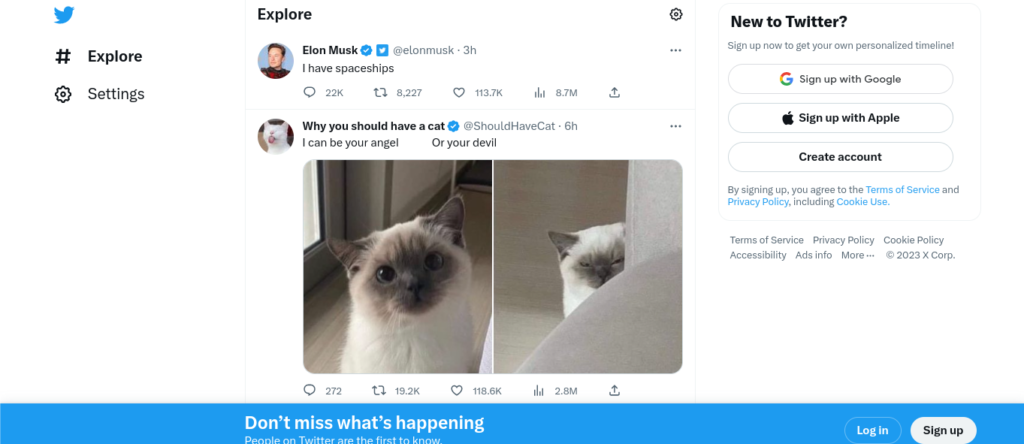In today’s fast-paced digital landscape, the power of social media cannot be overlooked, especially when it comes to the dynamic realm of real estate. Social media marketing has revolutionized the way properties are bought, sold, and showcased to potential buyers. With the ability to reach a vast audience, engage with prospects, and build a strong brand presence, social media has become an indispensable tool for real estate agents and professionals.
Gone are the days of relying solely on traditional marketing methods to connect with homebuyers or renters. Social media platforms provide a virtual stage where real estate agents can captivate their audience, create meaningful interactions, and showcase properties in an immersive and visually appealing manner. It’s a powerful avenue that harnesses the influence of digital connections to drive real-world results.
From Facebook’s targeted advertising capabilities to Instagram’s visually captivating content, each social media platform offers unique opportunities to connect with potential clients. By crafting a comprehensive social media strategy, real estate professionals can tap into these platforms’ potential, enhancing their visibility, expanding their network, and ultimately generating more leads.
But social media marketing for real estate is not merely about posting listings and hoping for the best. It requires a well-thought-out approach, understanding the nuances of each platform, and leveraging the latest trends and tools to stand out in a crowded online marketplace. Whether it’s creating compelling content, engaging with followers, or measuring the effectiveness of campaigns, mastering the art of social media marketing in the real estate industry can unlock a world of opportunities.
In this ever-evolving digital landscape, it is crucial for real estate professionals to adapt and embrace social media as a key component of their marketing arsenal. By leveraging the power of social media, real estate agents can build their brand, forge meaningful connections, and ultimately achieve their business goals. So, let’s delve deeper into the realm of social media marketing for real estate and uncover the strategies and tactics that will set you apart in this exciting, competitive industry.
Benefits of Social Media Marketing for Real Estate Agents
1- Increased Exposure: Social media platforms provide real estate agents with a vast and diverse audience. By leveraging social media marketing, agents can significantly increase their reach and expose their properties to a larger pool of potential buyers or renters. This increased exposure translates into more leads and opportunities for sales or rentals.
2- Enhanced Brand Visibility: Social media allows real estate agents to establish and strengthen their brand presence. Agents can showcase their expertise, share valuable insights, and build a trusted reputation among their target audience. Consistent engagement and valuable content can position agents as go-to resources in the real estate industry, increasing their credibility and visibility.
3- Cost-Effectiveness: Compared to traditional marketing channels, social media marketing is often more cost-effective. Creating and managing social media accounts are typically free, and running targeted ad campaigns can be more affordable than traditional advertising methods. This makes social media a great option for agents with limited marketing budgets, allowing them to reach a wide audience without breaking the bank.
4- Targeted Advertising: Social media platforms offer robust targeting capabilities, allowing real estate agents to tailor their ads to specific demographics, interests, and locations. This level of precision targeting ensures that marketing efforts are focused on the most relevant audience, increasing the likelihood of attracting qualified leads and maximizing return on investment.
5- Engaging with Potential Clients: Social media facilitates direct engagement with potential clients, fostering meaningful connections and conversations. Real estate agents can respond to inquiries, address concerns, and provide valuable information in real-time, establishing rapport and building trust. This personalized approach can significantly improve the customer experience and increase the likelihood of converting prospects into clients.
Choosing the Right Social Media Platforms for Real Estate Marketing

With over 2 billion monthly active users, Facebook offers a wide reach and diverse audience. It provides robust targeting options and features such as Facebook Groups and Marketplace that can be utilized to connect with local communities and showcase listings.

Known for its visual appeal, Instagram is an excellent platform for showcasing property photos and videos. It’s particularly effective for targeting younger demographics and can help agents create a visually captivating brand presence.

LinkedIn is a valuable platform for real estate agents to connect with professionals, network, and establish partnerships. It’s a great avenue for showcasing industry expertise and engaging with a professional audience.

Twitter can be used to share real-time updates, industry news, and engage in conversations with potential clients and influencers. It’s an effective platform for building brand visibility and driving engagement.
When choosing social media platforms, it’s important for real estate agents to consider their target audience, content type, and marketing objectives. By strategically selecting the right platforms, agents can maximize their reach, engagement, and ultimately achieve their marketing goals.
Real Estate Social Media Marketing Strategies
Creating an effective social media strategy for real estate is crucial for maximizing your online presence, attracting potential buyers or renters, and establishing yourself as a trusted industry authority. A well-planned strategy ensures that your efforts on social media align with your overall business goals and resonate with your target audience. Here’s a detailed explanation of the key components involved in creating an effective social media strategy for real estate:
1- Define Your Objectives: Start by clearly defining your social media objectives. Are you looking to increase brand awareness, generate leads, promote specific listings, or engage with your audience? Understanding your goals will help shape your overall strategy and determine the metrics you’ll use to measure success.
2- Identify Your Target Audience: Define your target audience based on demographics, interests, and behaviors. Consider factors such as age, location, income level, and preferences in property types. This information will help you tailor your content and messaging to resonate with your ideal clients.
3- Choose the Right Platforms: Research and identify the social media platforms that best align with your target audience and business objectives. Popular platforms for real estate include Facebook, Instagram, LinkedIn, and Twitter. Each platform has its own strengths and user demographics, so focus your efforts on the platforms where your audience is most active.
4- Create Compelling Content: Develop a content strategy that showcases your expertise, engages your audience, and highlights your listings. Consider a mix of educational content, industry insights, stunning visuals, virtual tours, testimonials, and behind-the-scenes glimpses to keep your audience interested and informed. Use a variety of formats, such as photos, videos, infographics, and blog posts, to add variety and cater to different preferences.
5- Maintain Consistency: Consistency is key in social media marketing. Create a posting schedule that allows for regular, timely, and consistent content sharing. Plan your content in advance and utilize scheduling tools to automate posts. This ensures that you stay active and maintain a consistent presence in your followers’ feeds.
6- Engage and Interact: Social media is a two-way street, so actively engage with your audience. Respond promptly to comments, messages, and inquiries. Foster conversations, ask questions, and encourage user-generated content. Building genuine connections and providing valuable interactions will help you build trust and loyalty.
7- Leverage Visuals: Visual content is highly effective in the real estate industry. Utilize high-quality, professionally taken photos and videos to showcase your listings. Highlight unique features, capture the essence of the property, and evoke emotions in your audience. Consider utilizing virtual tours, 360-degree videos, or live video streams to provide immersive experiences.
8- Utilize Paid Advertising: Consider incorporating paid advertising into your strategy to expand your reach and target specific demographics. Platforms like Facebook and Instagram offer robust advertising options, including targeted ads, retargeting campaigns, and lead generation forms. Allocate a portion of your marketing budget towards paid advertising to amplify your reach and generate qualified leads.
9- Monitor and Analyze: Regularly monitor and analyze the performance of your social media efforts. Use analytics tools provided by each platform or utilize third-party tools to track metrics such as engagement, reach, impressions, click-through rates, and conversions. Adjust your strategy based on data-driven insights to optimize your results.
10- Stay Up-to-Date with Trends: Social media trends are constantly evolving, so stay abreast of the latest developments and features. Embrace new features like stories, live videos, or interactive polls to keep your content fresh and engaging. Experiment with emerging platforms and tactics to stay ahead of the competition and reach new audiences.
Conclusion
Social media marketing has become an essential tool for real estate professionals to connect with their target audience, promote their listings, and build a strong online presence. It offers numerous benefits, including increased brand visibility, expanded reach, and the ability to engage directly with potential buyers and sellers.
Choosing the right social media platforms is crucial, as it allows real estate agents to focus their efforts on platforms where their target audience is most active. Creating an effective social media strategy is also important, which involves setting clear goals, defining target demographics, and developing a content plan that showcases the unique aspects of each property.
Social media marketing has revolutionized the way real estate professionals market their properties and connect with potential buyers and sellers. It provides a cost-effective and efficient platform to showcase listings, engage with the audience, and establish a strong online presence in a highly competitive industry. By embracing social media marketing strategies, real estate agents can enhance their visibility, increase lead generation, and ultimately drive more successful transactions.





 Get Sala Now
Get Sala Now